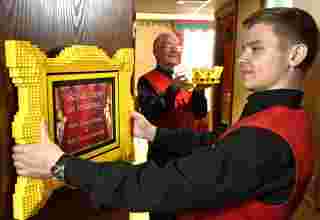As a result, the research of 2,000 adults revealed many won’t take photos from influencers, online reviews – or even footballer’s injuries – at face value.
Others struggle to trust emails, calls and texts from unrecognised contacts, people on dating apps and quotes from tradespeople.
And three-quarters feel it is harder than ever to know what information they should trust.
While half pinpointed misinformation spread on social media as the cause of their cynicism, 39 per cent blamed it on the fear that those trying to scam them are becoming more sophisticated in their tactics.
It also emerged 86 per cent feel it is important to conduct their own research, rather than just taking things at face value.
Half of adults even insist on doing their own research about health concerns online and not just relying on what a doctor says.
The survey was commissioned by Santander, whose head of fraud control, Chris Ainsley said: “The constant bombardment of scams has really impacted people’s levels of trust.
“Whether it’s phone calls from fraudsters pretending to be from your bank or investment opportunities that simply seem too good to be true, it’s clear that over time it’s denting our trust in all sorts of things.
“By taking your time and never letting someone pressurise you into acting quickly when it comes to your money, we can help to differentiate who to trust and who to avoid.”
The survey also found nearly one in three will question things they encounter at least a few times a week, while 15 per cent are apprehensive multiple times each day.
On average, Brits only trust six people – and seven in 10 admitted that once their trust has been broken it is ‘almost impossible’ to regain it.
Those polled, via OnePoll, have had their trust broken as many as four times over the last 12 months.
Chris
-
Top 18 activities those with a physical condition struggle to do – including sleep
Millions of Brits are unable to exercise, sleep or endure long journeys in the car … -
Reimagined fairy tales – as read by comedian Ellie Taylor
Classic fairy tales have been reimagined to see Goldilocks finally get her comeuppance, Ja… -
Top 30 things over 65s do to maintain independence – including gardening
Retirees are determined to maintain their independence in later life, by dressing how they…
Load More Related Articles
-
Top 18 activities those with a physical condition struggle to do – including sleep
Millions of Brits are unable to exercise, sleep or endure long journeys in the car … -
Reimagined fairy tales – as read by comedian Ellie Taylor
Classic fairy tales have been reimagined to see Goldilocks finally get her comeuppance, Ja… -
Top 30 things over 65s do to maintain independence – including gardening
Retirees are determined to maintain their independence in later life, by dressing how they…
Load More By Entertain The Kids
-
Top foodstuffs Brits have had in the cupboard without using for a year or more
Vinegar, stock cubes and tinned vegetables are some of the most unloved foods in the natio… -
Millions are turning to TIKTOK and other social media platforms for energy saving hacks
Analysis of the 50 most viewed hacks tagged ‘energy saving’ found clips about … -
Top 20 neighbourly annoyances
The average adult hasn’t spoken to their neighbour for three weeks – but milli…
Load More In Lifestyle
Comments are closed.
Check Also
Top 18 activities those with a physical condition struggle to do – including sleep
Millions of Brits are unable to exercise, sleep or endure long journeys in the car …


















